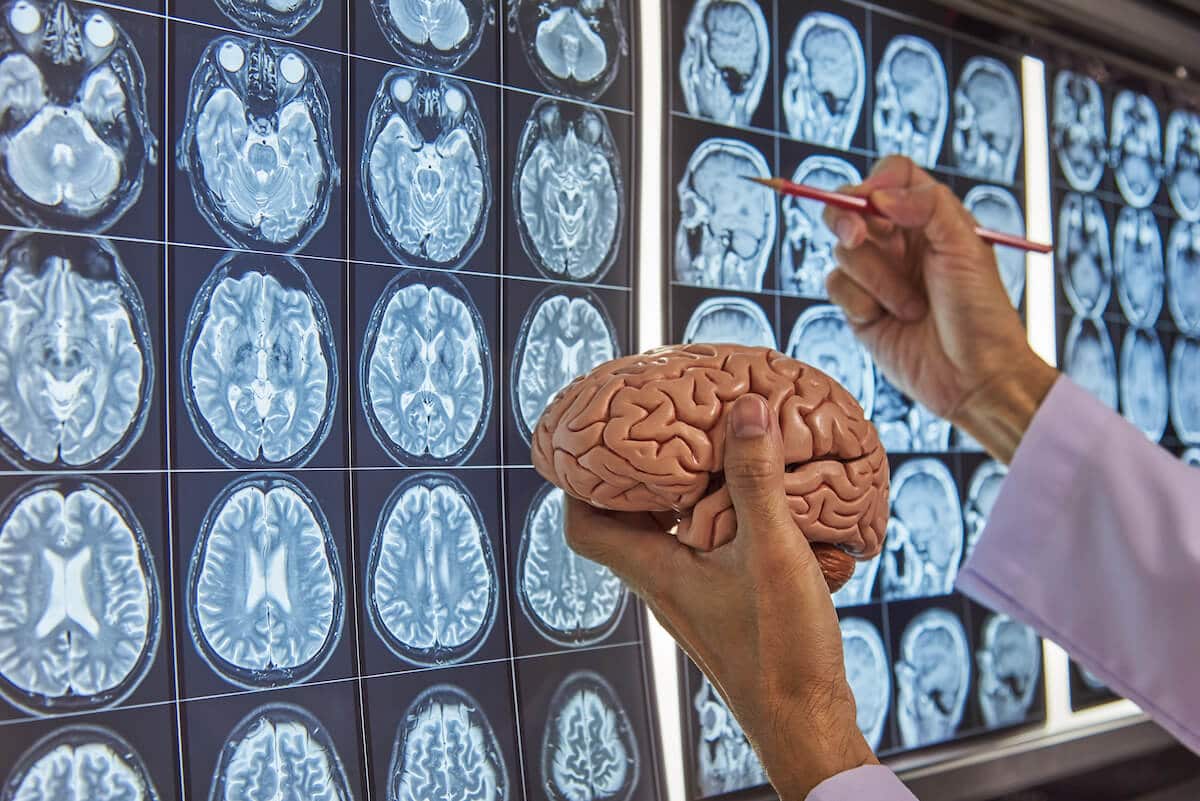
Neurosurgeons are the unsung heroes of the medical world, dedicating their lives to understanding and treating the most complex organ in the human body: the brain. Their work is both fascinating and challenging, and there are many intriguing facts about these skilled professionals that often go unnoticed. From their rigorous training to their remarkable surgical techniques, neurosurgeons play a crucial role in saving lives and improving the quality of life for countless patients. In this article, we'll delve into 15 fun and surprising facts about neurosurgeons that will give you a newfound appreciation for the incredible work they do. So, let's embark on a journey to uncover the lesser-known aspects of these medical maestros.
Key Takeaways:
- Neurosurgeons undergo extensive training and use advanced technology to treat brain, spine, and nervous system conditions, improving patient outcomes and quality of life.
- Neurosurgeons play a vital role in trauma care, contribute to medical research, and make a profound impact on the lives of their patients through their resilience and dedication.
Neurosurgeons are highly skilled medical professionals.
Neurosurgeons are among the most highly trained and skilled medical professionals, requiring many years of education and training to become experts in their field. They undergo rigorous schooling, including four years of undergraduate study, four years of medical school, and at least six to seven years of residency training. This extensive training equips them with the knowledge and expertise to perform complex surgeries and provide specialized care for patients with neurological conditions.
Neurosurgeons treat conditions affecting the brain, spine, and nervous system.
Neurosurgeons are specialized in diagnosing and treating a wide range of conditions that affect the brain, spine, and nervous system. They are trained to address issues such as brain tumors, spinal cord injuries, stroke, epilepsy, and Parkinson’s disease, among others. Their expertise extends to both surgical and non-surgical management of these conditions, allowing them to provide comprehensive care to their patients.
Neurosurgeons often work closely with other medical specialists.
Given the complexity of neurological conditions, neurosurgeons frequently collaborate with other medical specialists, including neurologists, oncologists, radiologists, and physical therapists, to ensure comprehensive and multidisciplinary care for their patients. This collaborative approach allows for a more holistic treatment plan and better outcomes for individuals with neurological disorders.
Neurosurgeons can specialize in specific areas of neurosurgery.
Neurosurgeons have the opportunity to focus their practice on specific areas within neurosurgery, such as pediatric neurosurgery, neuro-oncology, functional and stereotactic neurosurgery, or spine surgery. This specialization allows them to develop expertise in particular types of neurological conditions and provide targeted, specialized care to patients with those specific needs.
Neurosurgeons are at the forefront of technological advancements in medicine.
As pioneers in the field of medicine, neurosurgeons are often early adopters of cutting-edge technologies and surgical techniques. They utilize advanced tools such as intraoperative MRI, neuro-navigation systems, and minimally invasive surgical approaches to enhance the precision and safety of neurosurgical procedures, ultimately leading to improved patient outcomes.
Neurosurgeons play a crucial role in trauma care.
Neurosurgeons are integral members of trauma care teams, particularly in the management of head and spinal injuries. Their expertise in assessing and treating traumatic brain and spinal cord injuries is vital in providing timely and effective interventions for patients who have experienced severe trauma.
Neurosurgeons undergo continuous education and training throughout their careers.
Given the rapid advancements in medical knowledge and technology, neurosurgeons are committed to lifelong learning and professional development. They participate in ongoing education, attend conferences, and engage in research to stay abreast of the latest developments in neurosurgery, ensuring that they deliver the highest standard of care to their patients.
Neurosurgeons possess exceptional surgical skills.
One of the hallmarks of neurosurgeons is their exceptional surgical dexterity and precision. Performing intricate procedures on the delicate structures of the brain and spine requires a high level of technical proficiency, and neurosurgeons are renowned for their ability to execute complex surgeries with meticulous attention to detail.
Neurosurgeons are dedicated to improving patient outcomes and quality of life.
Neurosurgeons are driven by a deep commitment to enhancing the lives of their patients. Whether through tumor resections, spinal fusions, or functional neurosurgery procedures, their primary goal is to alleviate suffering, restore function, and improve the overall quality of life for individuals affected by neurological conditions.
Neurosurgeons contribute significantly to medical research and innovation.
Many neurosurgeons are actively involved in research endeavors aimed at advancing the understanding and treatment of neurological disorders. Their contributions to scientific discovery and innovation have led to breakthroughs in neurosurgical techniques, neuroimaging modalities, and the development of novel treatment approaches, benefiting patients worldwide.
Neurosurgeons are highly sought after for their expertise.
Given the specialized nature of their work, neurosurgeons are in high demand, with patients seeking their expertise for complex and challenging neurological conditions. Their reputation for excellence and their ability to address intricate medical issues make them invaluable members of the healthcare community.
Neurosurgeons must possess strong communication skills.
Effective communication is essential for neurosurgeons, as they must convey complex medical information to patients and their families in a clear and compassionate manner. They also collaborate closely with other healthcare professionals, requiring strong interpersonal skills and the ability to work as part of a multidisciplinary team.
Neurosurgeons often engage in teaching and mentorship.
Many neurosurgeons are actively involved in educating the next generation of medical professionals. They serve as mentors and educators, sharing their knowledge and expertise with medical students, residents, and fellows, thereby contributing to the continued advancement of the field of neurosurgery.
Neurosurgeons are known for their resilience and dedication.
The demanding nature of neurosurgery requires a high degree of resilience and unwavering dedication. Neurosurgeons routinely confront challenging cases and high-pressure situations, yet they remain steadfast in their commitment to providing the best possible care for their patients.
Neurosurgeons make a profound impact on the lives of their patients.
Through their skill, compassion, and unwavering dedication, neurosurgeons have the power to profoundly impact the lives of individuals facing neurological challenges. Their ability to restore hope, functionality, and quality of life to patients underscores the invaluable role they play in the healthcare landscape.
Conclusion
Neurosurgeons are highly skilled and dedicated medical professionals who play a crucial role in treating conditions affecting the nervous system. Their expertise and commitment to patient care make them an integral part of the healthcare field. With their advanced training and cutting-edge techniques, neurosurgeons continue to make significant contributions to the understanding and treatment of neurological disorders. As they strive to improve patient outcomes and quality of life, neurosurgeons exemplify the intersection of medical science and compassionate care.
FAQs
What does a neurosurgeon do?
Neurosurgeons are specialized physicians who diagnose and surgically treat disorders of the nervous system, including the brain, spinal cord, and peripheral nerves.
What conditions do neurosurgeons treat?
Neurosurgeons treat a wide range of conditions, including brain tumors, spinal disorders, traumatic injuries, vascular disorders, and neurological abnormalities.
How long does it take to become a neurosurgeon?
Becoming a neurosurgeon requires extensive education and training, typically encompassing 14 years of post-secondary education, including medical school, residency, and fellowship.
What are some common procedures performed by neurosurgeons?
Neurosurgeons perform various procedures such as brain surgery, spinal fusion, deep brain stimulation, and microvascular decompression, among others.
What are the key skills and qualities of a successful neurosurgeon?
Successful neurosurgeons possess exceptional surgical skills, critical thinking abilities, empathy, resilience, and a commitment to ongoing learning and professional development.
Was this page helpful?
Our commitment to delivering trustworthy and engaging content is at the heart of what we do. Each fact on our site is contributed by real users like you, bringing a wealth of diverse insights and information. To ensure the highest standards of accuracy and reliability, our dedicated editors meticulously review each submission. This process guarantees that the facts we share are not only fascinating but also credible. Trust in our commitment to quality and authenticity as you explore and learn with us.


